A year into his Presidency and Vice-Chancellorship, Professor Duncan Ivison is firmly focused on the future. He tells us about his vision for Manchester’s next decade and the work being done to take us there.
“Manchester really shines on a sunny day,” Duncan Ivison says as he welcomes me into his office on an unprecedentedly hot Friday afternoon in April. High praise from someone who’s lived in Sydney for the past 22 years.
I’m here to chat about his first year as the University’s President and Vice-Chancellor, but can’t resist asking how his new base in a city renowned for its drizzle compares to his former home in Australia’s ‘Emerald City’.
Happily, he has nothing but praise – “Manchester’s much greener than I expected. It’s got wonderful parks. What’s fascinating to me is a lot of these green spaces are the product of people who had great success in Manchester and decided to create these opportunities for its citizens.” It’s a heritage he’s keen for the University to uphold.
It’s an extraordinary university; really embedded in the city and with a strong sense of place. You really feel like you’re in a city that has a bit of swagger, a bit of heart and soul. And yet it has this global aspiration that’s rare.
A sense of place
Growing up in Montreal, Canada, where he gained his degree in Political Science and Philosophy, Duncan also studied, lived and worked in the UK and Australia before settling in Sydney, New South Wales. Spring heatwaves aside, it wasn’t the weather that tempted him to return to the UK. Rather it was the ethos of our university and the city it sits in.
“It’s an extraordinary university; really embedded in the city and with a strong sense of place. You really feel like you’re in a city that has a bit of swagger, a bit of heart and soul. And yet it has this global aspiration that’s rare.”
Speaking of global, music was another draw. Duncan isn’t the first to note that the Manchester sound is world renowned. His own student years were soundtracked by the likes of Joy Division and New Order, but he’s clear that the city’s musical tradition is greater than Madchester.
“It’s the birthplace of House music. There’s Northern Soul, and amazing classical music as well – The Hallé, the Camerata, the Royal Northern College of Music. It’s really a remarkable place for music in general, let alone the other cultural institutions. The cultural riches of Manchester have always been one of its great strengths, alongside the politics, innovation and science.”
Sport, too, attracts people every year from across the world to make the pilgrimage to Old Trafford or the Etihad Stadium. Indeed, there was a time when Duncan believed sport, ice hockey in particular, would play a more significant role in his future, before deciding to take up a seat on a different bench entirely – that of the courtroom.
“I went to university thinking I was going to be a lawyer. In my first week I went into my first lecture, a philosophy lecture, and I just fell in love with the subject, and this is where I’ve ended up as a result,” he says. And that’s the thing about universities, they “open up new worlds to students […], new opportunities, things they never dreamt that they would have the chance to do”. Duncan adds: “If you told my 18-year-old self I would be a President of The University of Manchester, I would’ve said, ‘you’re completely nuts’.”
While dictating our philosophy is something this philosopher is keen to avoid, Duncan believes making the world a better place is central to both our ideology and reputation.
“It’s the combination of a deep commitment to asking fundamental questions about the nature of the world combined with a real care and concern for the impact our work can have and the difference that can make. If there is a philosophy of Manchester, it’s something like that.”
Shaping Manchester's future
Just shy of a year into his Vice-Chancellorship, Duncan readily admits that his most important lesson has been that he needs “a lot of help” in the role. And there’s a lot to learn – 201 years of history to be precise. But while he is deferential of our heritage, his focus is set firmly on shaping our future.
Part of our strategy is being really clear about the values that will guide us as we think about our research, our teaching and the contribution we make to the city, to the region, to the world.
“People want to be part of an organisation that has a clear sense of direction, what it wants to achieve, and how it wants to do that,” Duncan says. To pin down exactly what that direction is, one of his first assignments was to launch Manchester 2035. The new strategy for the University’s next decade is taking shape, informed by input from students, staff, alumni, supporters, partners and locals.
“Part of our strategy is being really clear about the values that will guide us as we think about our research, our teaching and the contribution we make to the city, to the region, to the world. We’re thinking about how we work with our partners, our various activities and the things we need to do to get better.” It’s a time of change, not just at Manchester but for the sector as a whole. But, philosophical as ever, Duncan doesn’t see change as frightening.
“Change is an ever-present feature of life. We’re changing all the time. The way I like to think of it is, how do we get better? What can we learn from what works and what doesn’t work in order to get better,” he explains. “Sure, there are times where change is hard because it involves choices that sometimes people want to avoid rather than tackle. But hopefully, if you deliver change well, people are energised and challenged by that process.”
Delivering change well is central to Manchester 2035. With input from the whole University community, the strategy for our next ten years is due to launch this autumn.
“I hope the first thing we get is a really compelling vision for what kind of university we need to be by 2035,” Duncan says, adding: “That doesn’t mean we’ll have it all figured out, or that there won’t be things that will change, or external shocks that we have to deal with. But I hope people have a strong sense of the direction the University is taking, and that they feel excited, motivated and challenged by the new strategy.”
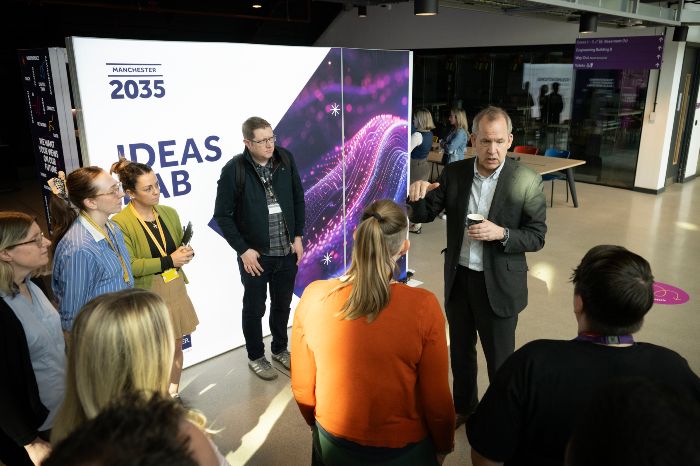
Duncan presents the Manchester 2035 Ideas Lab
Valuing inclusivity
One of the foundational blocks of Manchester 2035 is the promise of belonging, and Duncan is clear that our university should pride itself on inclusivity rather than exclusivity. “Some universities like to talk about themselves in elitist ways, but that’s not for us. I think we should be defined by who we include rather than who we exclude, in addition to the value we create in people’s lives through the programmes we offer, the teaching we provide, the research we do. But that’s not incompatible with wanting to be one of the best universities in the world.”
Indeed, Duncan is clear that inclusion is the key to a successful university. “Universities are truth-seeking institutions – the core of what we do is to ask questions and try to get to the truth of things; to understand the world, whether that’s the nature of the environment or the universe, or how government works, or the nature of literature or philosophy.
“To be a truth-seeking organisation, people need to be free to ask whatever questions they need to ask, and to follow those questions wherever they take them. And to get at the truth of the matter, you need to make sure as many people as possible are part of that conversation. We need to make sure we have sufficiently diverse participants in the conversation to make sure we’re getting the right answer.”
As a university so deeply enmeshed in its city and its history, Manchester is ideally placed to seek truth and deliver answers. “What Manchester has in terms of its embeddedness in the city is special. It’s this culture of collaboration and connectivity that will be at the heart of our future. It’s one of our superpowers, and I think we need to lean into that and exercise that superpower as much in the future as we have in the past.”
With the past in mind, Duncan sees former students as being integral to the conversation. “Once you’ve been to Manchester, you’re a Mancunian for life. This is your university, and it will be your university for the rest of your life.”
Being part of our future
Not a week goes by without Duncan taking the time to read the news, advice and suggestions shared with him by our staff, students and alumni, and he reveals it’s been “a joy” hearing from and meeting them. However, one of his hopes is that this relationship be porous – that past students return to Manchester as they continue their journey of lifelong learning by retraining, taking a short course or enrolling on a new programme. The door is always open.
And then there’s the role that our community can play in shaping The University of Manchester of the future. This autumn will also see the launch of Manchester’s first global fundraising and volunteering campaign, providing alumni, donors, colleagues and students with the chance to make a real difference in the world. “It’s an opportunity for us all to support the University and its ambitions for the future, and to think of supporting the next generation of students, researchers, creators and innovators.”
Manchester has a rich tradition of shaping the world for the better and giving back to its people, from activist Esther Roper, who in the early 20th century helped establish and volunteered at the University Settlement in Ancoats, to Enriqueta Rylands, who used the money she inherited from her late husband, the entrepreneur John Rylands, to build and stock the John Rylands Research Institute and Library. Then there’s Professors Brian Cox, David Olusoga, Danielle George and others who donated their time to share their expertise in the 2020 Lockdown Lectures series.
This commitment to seeking, discovering and sharing knowledge has been at the core of the University’s ethos for more than 200 years and will be central as we pave our way to the future with the October launch of Manchester 2035. “I think the great universities of the 21st century will be ones that are really committed to being engaged in their communities in really deep, sustained ways,” Duncan says.
“I really hope that our community feels as though we’ve got a clear sense of what we’re going to need to be by 2035.”
Discover more about Professor Duncan Ivison with our quick-fire questions interview.

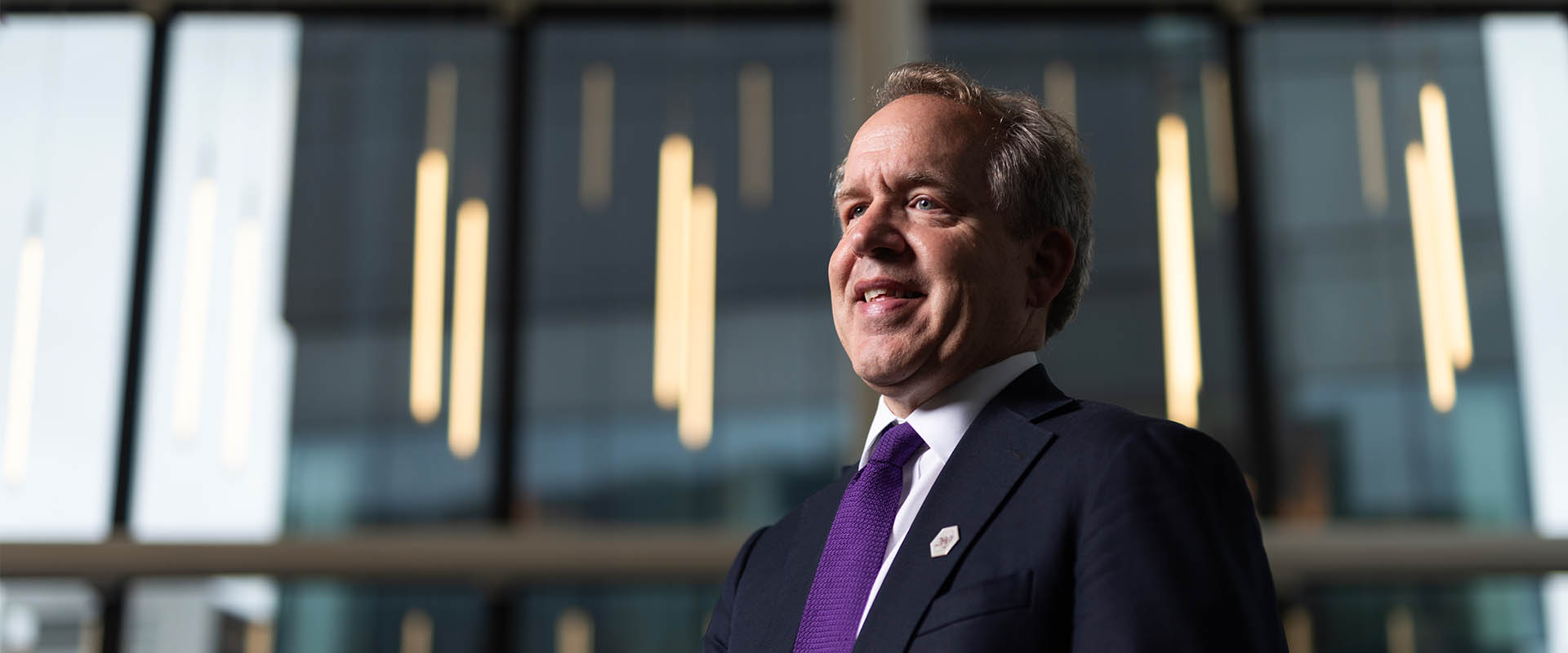
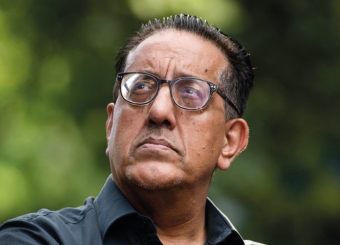
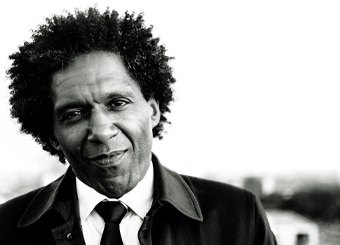
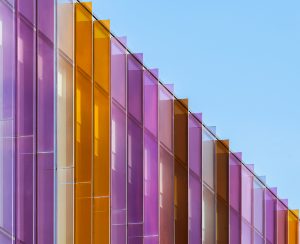
-(1).jpg)